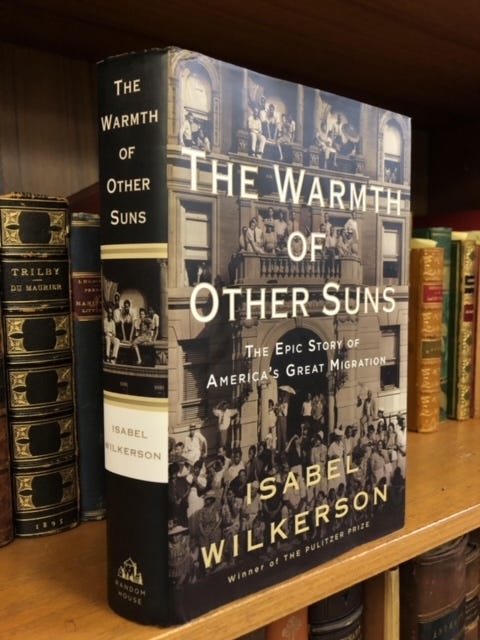I was raised in Columbus, Ohio, amidst the white confines of a K-12 Catholic education and friends who loved rock & roll music. So it’s no wonder that I was woefully unaware of my racial history.
Interestingly enough, a girlfriend of vanilla persuasion brought this to my attention years ago. During a dinner conversation one evening, she had the audacity to state that I was “out of touch with the historical past of my people.” Angry, I denounced what seemed at the time to be a silly statement.
Today, I am embarrassed to admit that back in 1999, she was probably right. Sadly, it wasn’t until my 50’s that I began to develop a fervent curiosity and interest in the Black American experience and my ancestral past.
Fast forward to 2016. That was the year I met an urbane, sophisticated, intellectual brotha by the name of Paul Ross. Because we had a shared interest in books, we immediately hit it off. Whenever we randomly crossed paths in Denver’s Cherry Creek North District, he always had a ton of book recommendations to weigh me down with, adding to the twenty others I’d already purchased but hadn’t had the time to crack open.
But there’s one book recommendation of his, above all others, that continues to have a significant impact on my life. Entitled “The Warmth of Other Suns,” this well-researched non-fiction masterpiece by Pulitzer Prize-winning author Isabel Wilkerson unearths one of the greatest, esoteric themes of American history, namely, the Great Migration of black folks from the Jim Crow South in search of a better life.
We as a people were seeking what the novelist Richard Wright called “The Warmth of Other Suns,” the title of the book. This bestselling read brings to life the fascinating stories of three people who experienced the depths of this time period:
Ida Mae Gladney was a Mississippi sharecropper who left for Chicago in 1937 after the brutal beating of her husband’s cousin. Because Black Americans faced major barriers that often prevented their flight, she and her children devised an escape plan to meet her husband at a train depot so they could head North as a family.
George Swanson Starling is a Florida fruit picker who attempted to advocate for better pay for his fellow Black workers. He barely escaped with his life in 1945, eventually ending up in Harlem, NY. This led to careers as a factory worker and railroad porter, jobs where he continued to have to navigate a world of racism.
Robert Joseph Pershing was a physician who after completing medical school in the 50s decided to leave Louisiana for what he thought would be better pastures in California. However, he found an unwelcome environment for Black Americans at the hotels he sought to stay at on his journey West. Even more striking, despite having a bachelor’s and medical degree, he was routinely denied privileges at white hospitals.
Many of Wilkerson’s stories about U.S. racial tensions were hard to fathom and frequently brought tears to my eyes. While reading Wilkerson’s book, I was reminded that this was the historical time period during which my grandmother along with my dad relocated from Union Springs, Alabama to Columbus, Ohio, the city where I was raised.
I also thought about my Mom and what her experiences might have been like growing up in Richmond, Virginia, the seat of the Confederacy. She was a proud graduate of Virginia Union University, one of several historically black colleges that were established to provide Black Americans with educational opportunities otherwise unavailable to them.
In reading Warmth of Other Suns, I felt a sentiment similar to that of an Amazon reviewer who remarked:
“You’re Cheating Yourself If You Don’t Read This Book.”
And then there’s Russell Owens, a successful executive coach and business mentor in Denver, someone I’ve long admired for his deep insights and wisdom about life. I recommended the book to him and was pleasantly surprised when he not only purchased it but read it in his entirety.
And his response, well it was priceless. Mouth agape as he walked through the door of the infamous Pablo’s Coffee to meet me, he belted out “Whoa! Man! I had no idea.”
Not as much luck with another friend of mine, who made a sorry-ass attempt to pour through it after picking Wilkerson’s book up at the library. He blamed his failure to complete it on the expiration date for return.
Have you read “Warmth of Other Suns?” If so, please share some of your takeaways from it in the comment section below.





I read it a few years ago. It still sits proudly on my bookshelf. Everyone should read this book.